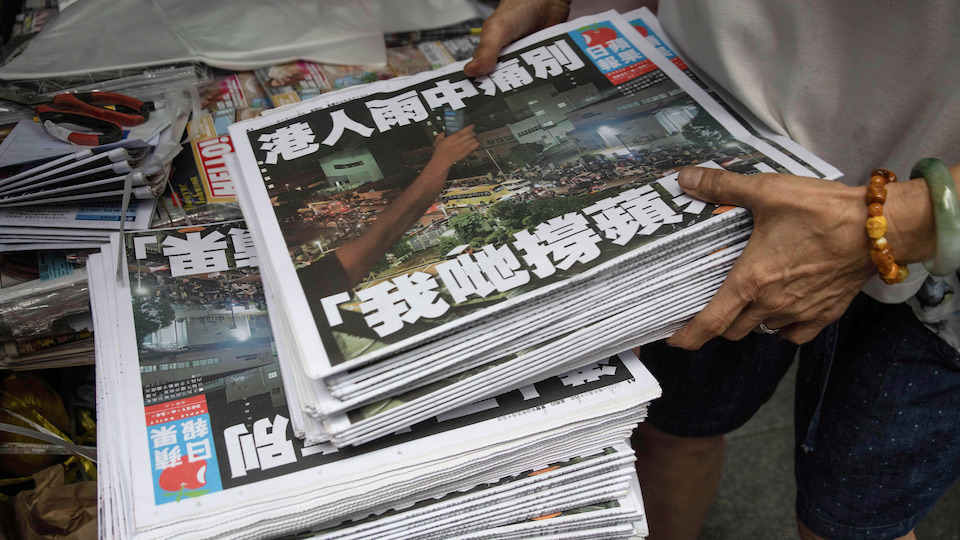22 newspapers worldwide forced to close in the past few years

At least 22 dissident media outlets worldwide have had to shut down their operations in the past five years. This is according to the organisation Reporters Without Borders (RSF). They were forced to give up due to economic pressure or legal harassment.
The most recent example: the pro-democracy newspaper Apple Daily (in German) from Hong Kong. Its last issue was published last week. The daily, which was founded 26 years ago and has a circulation of around 80,000, was accused of alleged violations of the controversial Hong Kong Security Law. As a result, police raided the newspaper’s headquarters on 17 June and arrested five executives. The newspaper’s assets were also frozen. As a result, the newspaper’s parent company, Next Digital, could no longer pay salaries and had to shut down operations.
A similar fate befell Akhbar Al Youm, Morocco’s last independent Arabic-language daily newspaper. The dissident medium was founded by Taoufik Bouachrine in 2009. RSF reports that the paper was barred from any state advertising after its founder was arrested in 2018. It also received no state aid during the Corona pandemic and eventually ceased operations in March 2021.
In September 2017, the English-language newspaper Cambodia Daily in Cambodia had to give up in the face of financial pressure. The government had demanded a retroactive tax payment amounting to the equivalent of about 5.3 million euros with the deadline set at about one month. The government had ignored requests by the newspaper for a proper tax audit. According to RSF, Cambodia Daily had reported independently for 24 years.
Laws against free media
Reporters Without Borders also criticises the legal actions taken against newspapers in some countries. Governments would use arbitrary and vaguely worded laws to shut down critical media.
For example, journalists who receive money from abroad are considered “foreign agents” in Russia. The news website VTimes had to capitulate in June after it was put on the list of “foreign agents” – it had only been founded the year before. Co-founder Aleksandr Gubski had told the organisation in June that the website had been put on the list because its administrator lived in the Netherlands. As a result, the news site had lost its advertisers as well as many of its news sources.
After the coup attempt in 2016, several media outlets were also banned in Turkey, including the daily newspapers Zaman, Taraf and the pro-Kurdish newspaper Ozgür Gündem. In addition, members of the media have been charged and imprisoned for alleged “membership in a terrorist organisation”. Currently, several journalists in Turkey are accused of offences that fall under the anti-terror law.
After the coup in February, the military junta in Myanmar suspended the licences of several daily newspapers, including 7 Day News and Eleven. Other independent newspapers such as the Standard Times were censored or faced paper shortages. Nowadays, there are no independent newspapers left to buy in Myanmar.
Impact on the right to information
RSF General Secretary Christophe Deloire criticised that in addition to violence against journalists, methodical action against newspapers is now common in many countries. “The death of a newspaper in another country triggers less emotion than the death of a human being, so it often goes unnoticed by the international public. Someone who doesn’t look closely might assume that the newspaper was the victim of mismanagement or declining public interest.” However, he said, newspapers are often deliberately made to give up – with terrible consequences for the right to information. The right to free access to information is enshrined in the United Nations Universal Declaration of Human Rights.
However, Reporters Without Borders also reported on newspapers that continue online: for example, El Nacional in Venezuela had to stop its print edition in 2015 after 75 years due to pressure from the government and a lack of paper. Online, however, the editorial team continues to report independently and critically of the government. (js)